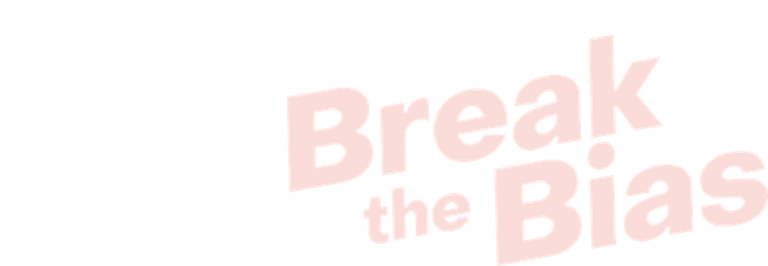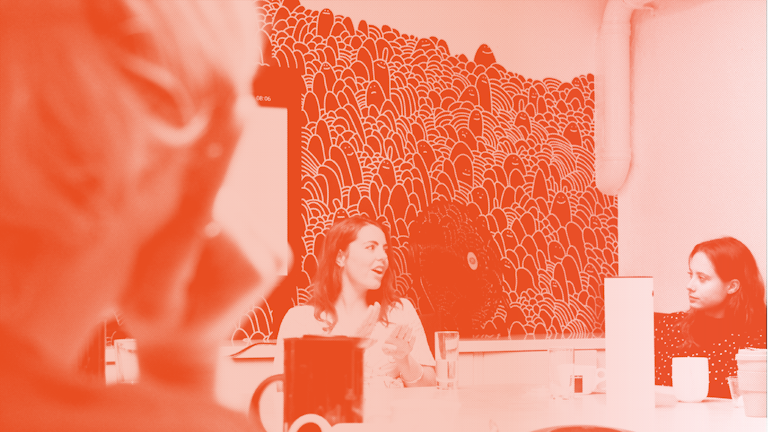Shopping Bag (0)
Shopping bag is empty


Listening, learning, building – Sophy Vanner Critoph speaks with Ferly founder Billie Quinlan…
Our first speaker was the amazing Billie Quinlan, who founded the sexual wellbeing company and app Ferly. She came to talk to us about the ups and downs of starting up a straight-talking audio app that deals with desire, empowerment and curiosity. Billie, and her co-founder Anna Hushlak, channelled their own experiences of sexual assault to create a platform that is rooted in communication and community, using their stories as a way of powerfully opening up a dialogue for others. Ferly is an important step in the right direction for women, viewing sexual health as the third pillar between mental and physical wellbeing. It’s all connected.
Ferly are on a mission to close the pleasure gap because, as Billie put it, “female sexuality has been a taboo for too long and sexual wellbeing is seen as something indulgent and unimportant”. We’ve picked out a few moments from the breakfast session that reflected on how to start a business, the topics close to Ferly’s heart, and how to approach their multifaceted audience of women...
On starting Ferly…
"I looked into training as a health coach, which was the first point I started on this Ferly journey. I was practicing with a lot of female clients, and their issues around self-worth and self-confidence. It began to effect me, I wondered why all these powerful women were filled with such self-doubt and were questioning every decision they made. A lot of the conversations also started to turn towards sex and a lack of confidence, doing things because they felt like they “should”.
Having worked in tech and small start-ups before, I knew I couldn’t scale coaching as a 1-1 business, it was too labour intensive. I wanted to build out a tech based platform for the business and there were so many serendipitous moments that came together in starting the app – mainly because I was being curious, not saying no and exploring different avenues... even when they didn’t seem like the obvious route.
A new incubator had opened up called Zinc, a six month business builder that takes 50 entrepreneurs and gives them a high level mission, encouraging them to build businesses around that. This one focused on the physical and emotional wellbeing of women and girls in the developed world. It spoke so strongly to me. It was everything I was trying to do on my own but with support, the ability to find a co-founder and a mission close to my heart.
I realised something – ideas are worthless! Everyone can generate ideas. But having a mission you really care about is what makes you stand out and motivates you. This journey has been so up and down, sometimes you’re in a Forbes article and other times there’s office drama in the space of 15 hours. But, if you have a great idea that doesn't matter. So, my advice is make sure you give a shit about the thing you want to do and always question what impact are you offering to the world and why."
On applying and hiring…
"I was so nervous about applying for the start-up incubator programme. I felt I had no skills, no ability. The application form was looking for three types of people; product people, tech people and commercial people. You had to grade yourself against being a ‘ninja’ on all of these skills, and I wasn’t a ninja at any of these things! But one thing I learnt from my time working in the city is the concept of ‘Future Truths’. Say what you want to be and then do it. So, I graded myself as a ninja on all the criteria and then told myself I would be in the next three months! I didn’t want to let being intimidated by the application form block me from pursuing my ambitions.
Now, on the other side, we’ve realised that our hiring criteria have to be examined. Asking for skills can be too prescriptive. I think this is very true when you’re hiring women. Women see a job description and unless they can see at least 80% of the things they can do on the listing they won’t apply for the role. Whereas men only need to feel like they can do a minimum of what's asked. We realised that in writing really detailed job descriptions we were closing ourselves off to women-identifying applicants.
So we changed. For example, we just hired a 21-year-old astrophysicist for a marketing role. I went to a user testing event and she was coming up with some many great ideas and had such a great attitude. She was working on her own projects and didn’t necessarily have all the skills needed for the role. But mentoring your team is also important and gives you the opportunity to clarify your own ideas around the role and what you’re expecting as a manager. Attitude is sometimes more important than skill – an ability to learn, to grow, to adapt. We can teach skills and scaffolding and grow with our employees."
On being mentored...
"What’s amazing about being mentored is the ability to stop and make time to think about your career. How often do you pause and make space to think about what you’re doing, where you want to go, and how you’re going to get there?
If you feel a sense of frustration and you don’t know how to get to the next phase, then carving out some time to reflect - even just once a month, once every two months - gives you a sense of purpose and can be really helpful. You should also try and do it when you’re happy! Not just when you’re frustrated. Make a list of what you love, what you’re working towards, where you want to be. Taking time for yourself is important."
On start-up challenges…
"Something Anna and I have reflected on is our roles and how we’ve come to them and even sometimes the resentment we have towards them… We’re incredibly close and yet even so, tensions build up. My background was commercial, Anna's is in academia and advocacy. It felt natural that I would take on the CEO role and she take on the CSO role but, of course, in a small start-up our roles merge into one another at times.
One of the hardest things about starting a business is that there is a huge amount of ambiguity. From the work you do each day, to the role you’re representing, to the team that you’re building. There’s so much overlap. If you’re someone who can’t handle ambiguity and you need defined boundaries, the start-up life can be hard!"
On building a women-focused app…
"Building an app for women's sexual wellbeing means you have to be hugely empathetic - but also make sure the app works practically. You have to think about the ways your technology works, the way you’re gathering data, who you’re targeting and why. Our small team of five have to be incredibly open to listening. We have strong, vocal women in there and our one male team member always takes a back seat and allows us to lead. But you need diversity across everything and that comes down to including empathetic men in the conversation. Different people bring different energies and ways of looking at things…"
On learning, growing, listening….
"Having a commitment to diversity was a huge learning for us. Anna and I were not woke enough when we started this business; we came into it thinking there’s only one definition of a woman and that we were speaking to all of them.
We quickly realised that as two white, heterosexual, cis-gendered women, we only represent a small slither of what it means to be a woman today.
Social understandings of gender are evolving and sexuality is so diverse. Everyone’s experiences are so unique and we’re moving away from these binary boxes that everyone has to fit into.
For us, a big part of our journey was creating a community of people who live and breathe our mission. Our advisory board is made up of people who can speak on behalf of their lived experiences, open up community dialogues and check our privilege. We’re definitely ‘in progress’, we don't get it right all the time.
Our app is focused at women, we talk a lot about biology, physiology and anatomy which brings up its own challenges – yet, not every woman has a vulva. So how do you speak to those audiences too?
We've been challenged as start-up to be super focused and laser-precise in our ‘initial audience’ and how we're going to capture them. But we decided to go against this received wisdom. We’re talking about humans. We’re not a software for HR, targeting small businesses. We have to take into consideration everyone who wants to identify with the platform and who needs this service.
Our biggest learning is being as open and accountable as possible. We continually invite our community to speak to us, to come into our spaces, to come and teach us. For us, the biggest thing is about making space for people’s voices and frustrations. We never want to be defensive, we don't apologise for what we’re building but we accept that we will get things wrong and try and correct that."
On rejecting shame...
"One thing we’ve noticed is a lot of talk around shame and the question being asked ‘am I normal?’. There’s this real sense there’s a ‘normal’ way of being and if you differ from that you need to get back on track. We’ve created a narrative as a society that there’s only one way to be sexual, only certain acceptable desires and behaviours you have to exhibit. And we’re here to tell you: there’s no such thing as ‘normal’.
You have to know yourself. There’s a lot of self-work that has to happen to know your self pleasure. We talk about about sex with another person, as if it always happens with another person. But sex starts with ourselves. Exploring the whole body, all the erogenous zones. Exploring fantasies. Exploring boundaries. If you don’t do that self work then how can you communicate that to a partner?"